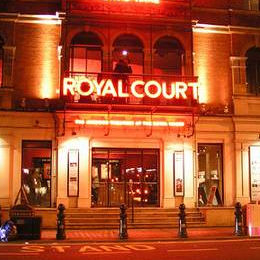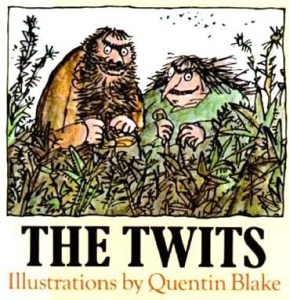Royal Court announces new season themed around revolution
Artistic director Vicky Featherstone said this morning she has responded to ‘what the playwrights are asking us to think about’

Themed around revolution, the season opens with Rory Mullarkey's The Wolf from the Door starring Anna Chancellor, and also includes new plays from Tim Price, Jack Thorne and Zinnie Harris, and Enda Walsh's new adaptation of Roald Dahl's The Twits.
Introducing the season, Featherstone said: "All of these plays are about revolutions – big and small acts of resistance. They are provocative, diverse and timely. They are great stories, inventively told and demanding that we consider a better future."
Kicking off the season in the Theatre Upstairs from 10 September to 1 November 2014 is The Wolf from the Door by Rory Mullarkey. Directed by James Macdonald, the play is a "wild road trip across Middle England where Lady Catherine (Anna Chancellor) and her young protégée Leo, enlist every tearoom, hot yoga class and WI group on a mission to change the country forever. "
The play, which is the 2014 Pinter Commission and also won the George Devine Award, will embark on a rural tour to village halls and community centres across the UK following its run in Sloane Square.
Meanwhile the Theatre Downstairs will host The Internet is Serious Business (19 September-25 October) by Tim Price, centring on the real life teenage creators of Anonymous, a "collective swarm who took on the most powerful capitalist forces from their bedrooms."
Price and director Hamish Pirie have apparently spent two years researching the play, including working closely with the headline-making hackers themselves.
Price's previous work includes Protest Song at the NT Shed, I’m With The Band at the Traverse and The Radicalisation of Bradley Manning for National Theatre Wales.
“The playwrights are asking us to think about acts of resistance big and small, about how we can make change happen”
“The playwrights are asking us to think about acts of resistance big and small, about how we can make change happen”
Next up in the Theatre Downstairs is 2071 (5-15 November 2014), co-authored by playwright Duncan Macmillan and leading scientist Chris Rapley. The play, titled after the year Rapley's oldest granchild will be the age he is now, puts climate science "centre stage" and is directed by Katie Mitchell, who previously staged Stephen Emmott's Ten Billion in the Theatre Upstairs.
The run will include a 'Day of Action' on 15 November, involving a series of open workshops, talks and a special 'town hall' meeting for audiences to discuss the themes addressed by the play.
Vicky Featherstone will direct God Bless the Child (12 November-20 December 2014) by Molly Davies in the Theatre Upstairs. The play explores a fictional teaching initiative called 'Badger Do Best', and examines what happens when the kids grow "tired of being guinea pigs in yet another government scheme."
It's followed in the Upstairs by Liberian Girl (7-31 January 2015) by first time writer Diana Nneka Atuona, directed by Matthew Dunster, which tells one teenage girl's story of survival in the Liberian war.
The Christmas production in the Theatre Downstairs is Hope by Jack Thorne, directed by Royal Court associate John Tiffany (who helmed Thorne's adaptation of Let the Right One In).
The play, which runs from 26 November to 10 January 2015, centres on a Labour council who are deliberating over how to make a £22million saving in their budget. It's billed as "a funny and scathing fable attacking the squeeze on local government."
It's followed by How to Hold Your Breath (4 February-21 March 2015) by Scottish writer Zinnie Harris. Directed by Featherstone, the play follows a successful British woman on a across a broken Europe, taking an "epic look at the true cost of principles and how we live now."
And rounding off the season on the main stage is Enda Walsh's "anarchic" adaptation of Roald Dahl's The Twits, which runs from 7 April to 31 May 2015 as part of Featherstone's new drive to attract younger audiences (read more about The Twits here).
"We never planned that we would create a season with a theme," said Featherstone this morning. "So there really isn't a theme, but we are responding to what the playwrights are asking us to think about.
"And the playwrights are asking us to think about revolution. The playwrights are asking us to think about acts of resistance big and small, about how we can make change happen, how we can stop just talking about it, how we can imagine a different future, and actually about how we can possibly even get there."













